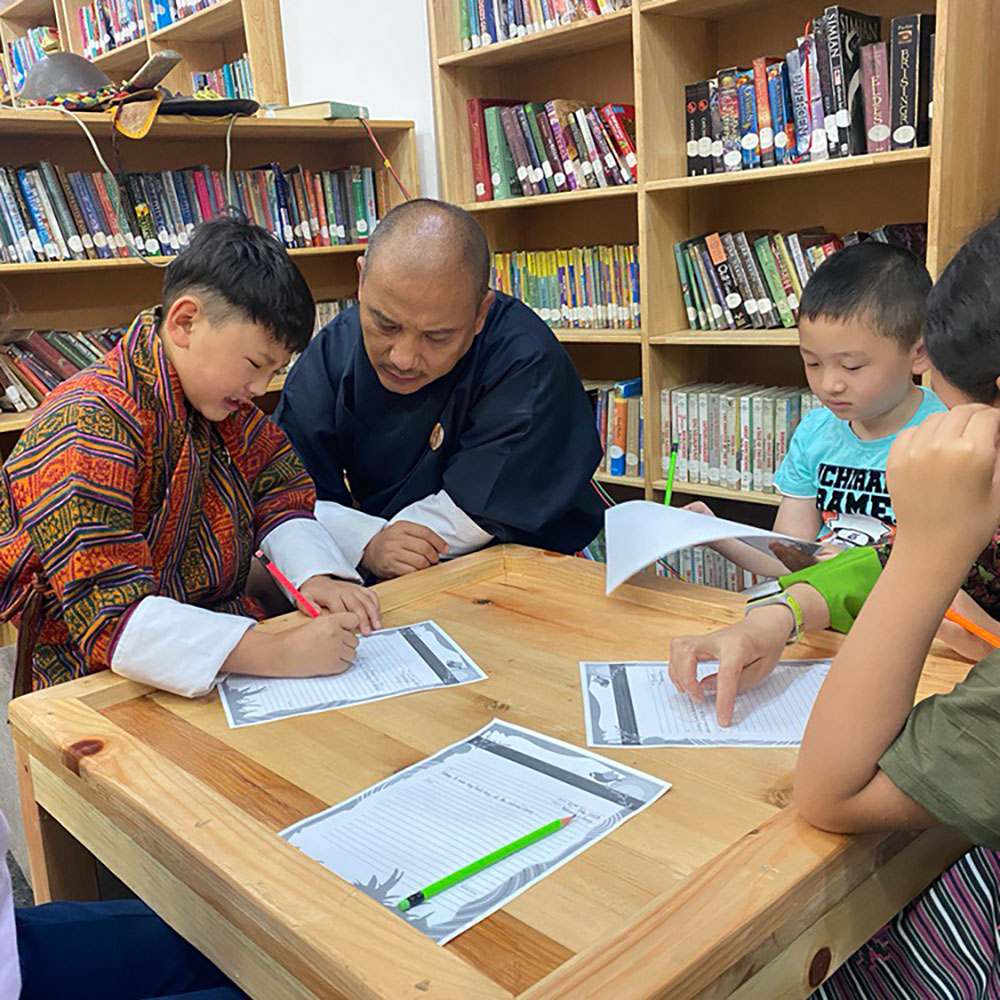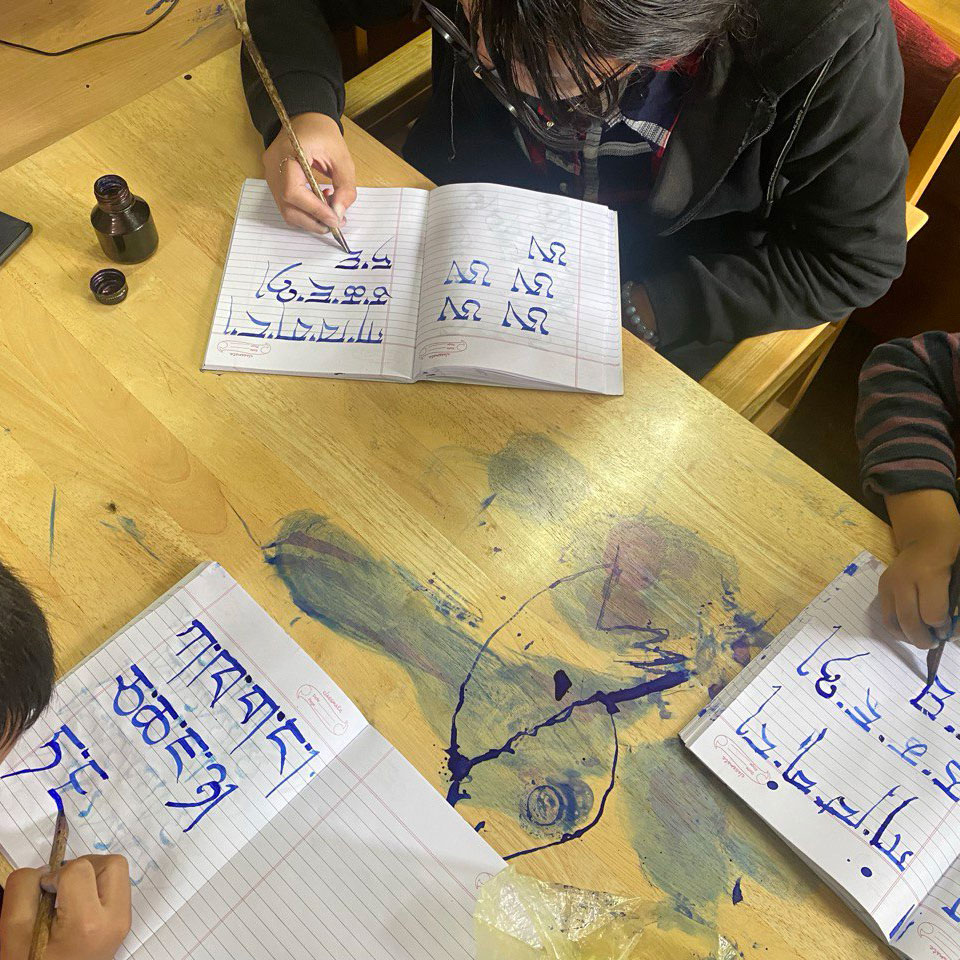
The private sector is set to play a significant role in the development and promotion of Dzongkha language with the Department of Culture and Dzongkha Development (DCDD) planning to outsource certain activities to private firms in the country.
Speaking to Kuensel, DCDD’s Director, Nagtsho Dorji, said that the approach in the 13th Plan to develop Dzongkha is multidimensional with the main focus on youth, leveraging technology, promoting digital content, and partnering with the private sector.
The DCDD plans to engage competent private firms to translate government documents into Dzongkha. Discussions with some private firms have already taken place, and fees for the work have been established.
DCDD will also compensate private individuals who wish to upload Dzongkha-related content on Wikipedia based on the content quality.

Students learning Dzongkha at the National Library
Starting this month, DCDD has been sponsoring a weekly page in the Dzongkha Kuensel newspaper to promote Bhutanese culture and tradition, and Dzongkha language. This is also expected to increase the readership of Dzongkha Kuensel newspaper.
Further, DCDD has also asked around 490 schools across the country to subscribe to Dzongkha e-Kuensel. Schools are encouraged to print hard copies for their libraries and share the e-version with teachers.
“This partnership between Kuensel and DCDD is seen as beneficial, particularly for students in remote areas where access to news is limited,” said Nagtsho Dorji. “This initiative also supports students in their research and school activities.”
To address the shortage of Dzongkha literature, books, comics, and videos for children, DCDD will focus on creating digital educational videos.
This also aligns with the government’s directive to invest less in print materials, according to DCDD officials.
A budget of Nu 20 million has been allocated for digital content production in the 13th Plan.
To create educational videos for pre-primary students, DCDD will collaborate with iBEST on language aspects. DCDD will also subsidize the cost for those who can’t afford the subscription to iBEST’s Educare app.
Work to include Dzongkha in Google Translate is also underway. “It is a major project and it will take some time,” Nagtsho Dorji said. “DCDD has to first include all Dzongkha words in Google, and at least a million words are required. Right now, less than 300,000 words have been included.”
Currently, DCDD is also printing the revised Dzongkha-English dictionary.
The National Library under DCDD now offers free Dzongkha-related services for students on weekdays, assisting with homework and other Dzongkha matters.
In addition, Bhutan Broadcasting Service (BBS) and DCDD are developing audiovisual materials to promote correct usage of Dzongkha, which will be aired on BBS and uploaded on YouTube.
Some initiatives that have been achieved in the past include development of a Dzongkha language translation app and digital content.
Regarding public concerns about the reduced emphasis on Dzongkha in schools, DCDD said that it is focusing on simplifying the language. Discussions with the education ministry are ongoing to address these issues.
To enforce the Prime Minister’s executive order mandating Dzongkha in government meetings and correspondences, DCDD will monitor agencies discreetly, offering support to those struggling to comply.
DCDD Officials said that the public’s mindset, which sees Dzongkha development as solely DCDD’s responsibility, hinders the progress. “There are many Dzongkha words, but people don’t use them daily like English, which makes it challenging,” according to a DCDD official.
DCDD officials said that Dzongkha development is not the department’s responsibility alone, and the public also has a major role in Dzongkha development and promotion.












